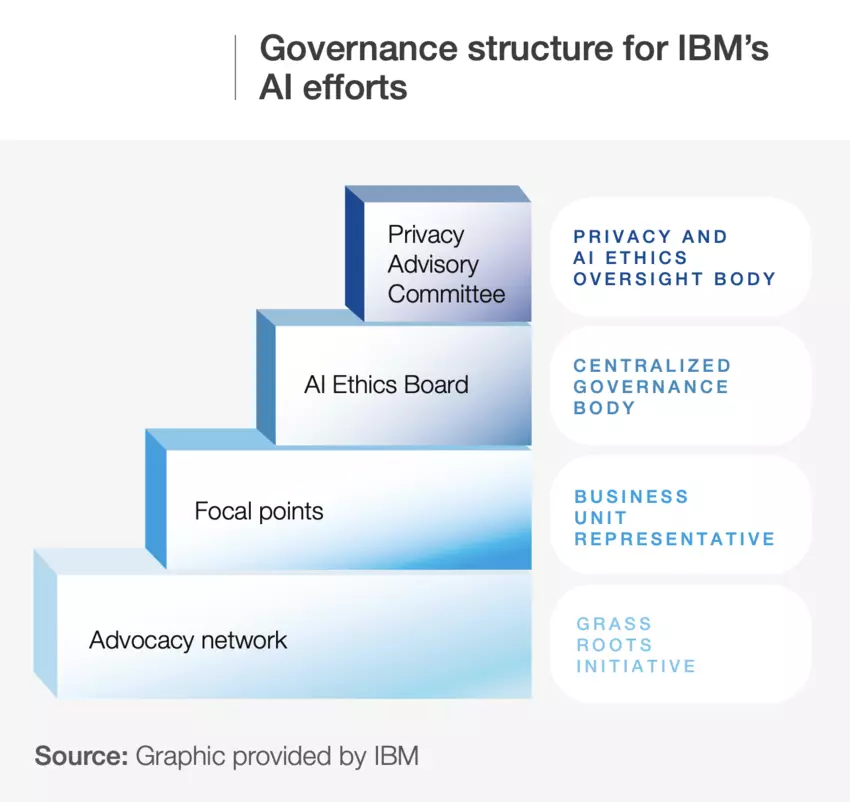Edition: October 6th, 2021
Curated by the Knowledge Team of ICS Career GPS

- Excerpts from article by Daniel Lim and Brian Green, published on weforum.org (World Economic Forum)
As companies evolve and grow, it is unfeasible for leaders to oversee every aspect of their business. Leaders must trust and empower their employees to make ethical decisions. Leaders need to provide the principles, guidelines, training, tools and support that will enable their employees to feel empowered and ready to handle ethical issues.
The purpose of responsible technology is to make positive impacts on society. The scale and scope of the impacts will vary by organisation, but the goal towards improving the state of society should be consistent.
The World Economic Forum (WEF) has been working to advance ethics in technology under a project titled Responsible Use of Technology. They have identified a need to highlight and share best practices in the responsible design, development, deployment and use of technology.
They publish case studies that feature organisations that have made meaningful contributions and progress in technology ethics. In this article the focus is on IBM’s journey towards ethical AI technology.
Here are the key lessons learned from WEF’s research on IBM, along with an overview of IBM’s journey towards ethical technology:
1. Trusting employees to think and act ethically
- When Francesca Rossi joined IBM in 2015 with the mandate to work on AI ethics, she convened a meeting of 40 colleagues to explore this topic. The work of this group of employees set in motion a critical chapter of IBM’s ethical AI technology journey.
- Initially, the group researched and published a paper titled Learning to trust AI systems, in which the company makes a set of commitments to advance its understanding and to put into effect the ethical development of AI.
- One of these commitments is to establish an internal ‘AI ethics board’, to discuss, advise and guide the ethical development and deployment of AI systems.
- All employees are being trained in the ‘ethics by design’ methodology, and it is also a mandate for all of IBM’s business units to adopt this methodology.
- The AI ethics board relies on a group of employees called ‘focal points’, who have official roles to support their business units on issues related to ethics.
- There is also a network of employee volunteers called the ‘advocacy network’, which promote the culture of ethical, responsible, and trustworthy technology.
- Empowering employees is an important part of making technology ethics work at IBM.
2. Operationalising values and principles on AI ethics
To operationalise ethics, there must first be commitments made to values.
- To this end, IBM developed a set of ‘principles and pillars’, implementation of which led to the development of technical toolkits so that ethics could penetrate to the level of code.
- These toolkits help IBM fulfill its own ethical commitments, and by making them open-source IBM hopes to help other tech companies, and the machine learning community more broadly.
3. Aiming for broad impact
- One of the ways that IBM has been attempting to promote the broad positive impact of technology has been through partnerships with educational and research organisations & multi-stakeholder organisations.
- Within education, in 2011, IBM launched P-TECH, a programme that promotes career-applicable skill-building for high school students while working with an IBM mentor.
- Eventually, they can participate in paid summer internships at IBM and enroll in an associate’s degree programme at no cost.
- At the university level, IBM has several partnerships with schools, such as the Notre Dame – IBM Tech Ethics Lab, to support underrepresented communities in STEM subjects and their teachers, and to improve relevant curricula.
- By teaming up with research organisations, IBM is helping to train the next generation of technology professionals. It is also creating communication channels between academia and industry, which include promoting the discussion of ethical concerns from both sides.
Takeaways
- IBM is committed to educating people and society about how technology and AI work. A better-educated society and especially better educated decision-makers are capable of making better decisions regarding the future role of AI in society.
- IBM wants to gather input from society about the ways AI is affecting the world. In this way, IBM can be more responsive towards the social impact of AI and act more quickly to prevent or react to harms.
- IBM and its employees are committed to developing, deploying and using AI to benefit the world. By making sure that society is educated about AI and that tech companies know about the immediate impacts of AI on society, AI will be more likely to be directed towards good uses.
Looking ahead
As more organisations share their experiences in adopting ethical technology practices, there is an opportunity to investigate the similarities and differences in their approaches.
This will help more organisations to learn from the experiences of others so that everyone is adopting methods and tools for the responsible use of technology.
…
(Disclaimer: The opinions expressed in the article mentioned above are those of the author(s). They do not purport to reflect the opinions or views of ICS Career GPS or its staff.)
Like this post? For more such helpful articles, click on the button below and subscribe FREE to our blog.




